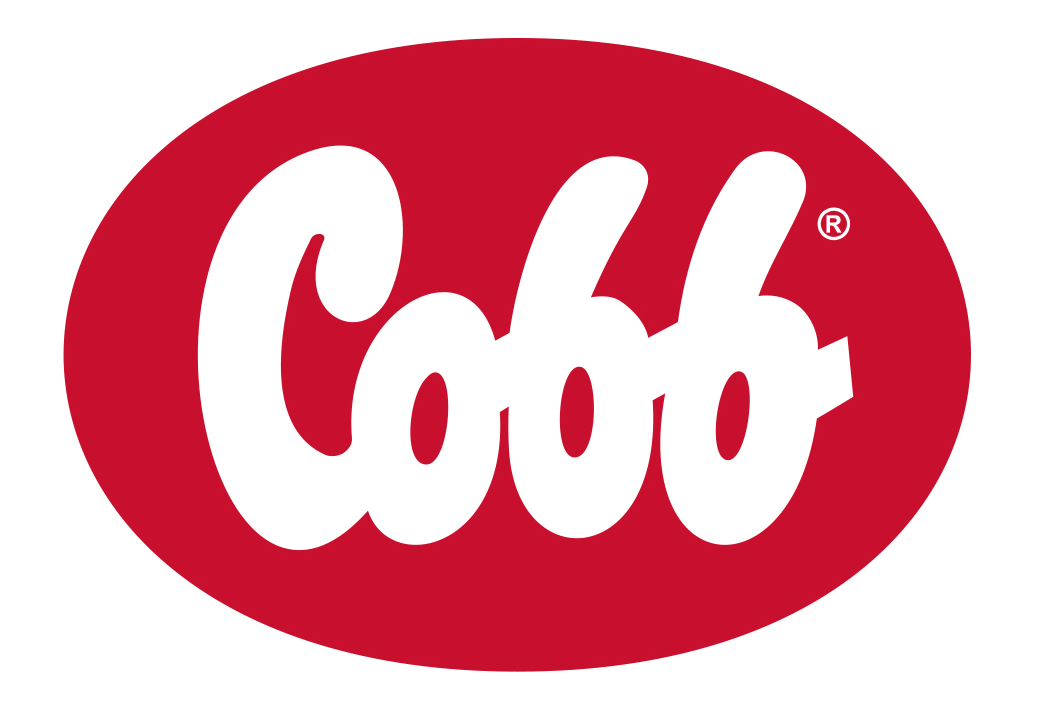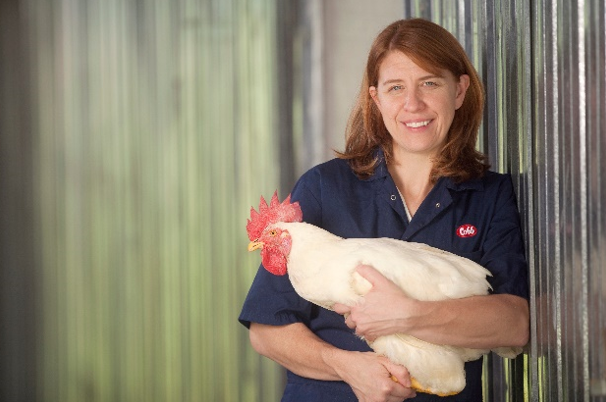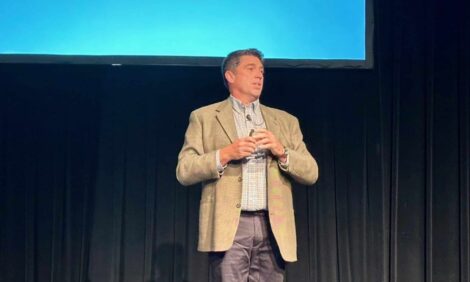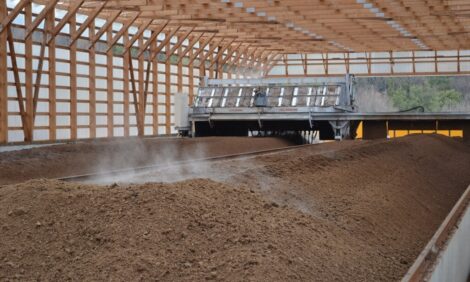



From Farm to Fork: The importance animal welfare and sustainability.
The role of broilers in ensuring sustainable food security for 10 billion people.Nearly 12 years ago, the Food and Agriculture Organization of the United Nations (FAO) issued a riveting report stating it will be necessary to produce 70% more food by 2050 to feed the growing global population that is expected to reach 9.7 billion people. During the last decade, the expectation to increase the volume of food, ensure greater food security, and improve the sustainability of food production has not varied, and the future forecast is not likely to change. As we look ahead, there is no doubt that the global poultry industry, specifically the broiler sector, is a viable solution for this challenge.
Sustainability and animal welfare are transformative investments for the future of animal agriculture and food production as we look ahead to 2050. Both can enable the global broiler sector to be a leading contributor to meet the United Nations Sustainability Development Goals (UN-SDG) related to zero hunger (UN SDG-2) and climate action (UN SDG-13). For example, chickens can be produced in a wide variety of geographic regions and poultry meat is one of the most nutritious, affordable and healthiest proteins available. Additionally, broilers are the most cost-effective farmed animal and efficiency continues to improve year on year due to genetic progress. Therefore, sustainability and animal welfare should be part of the strategic planning for progressive poultry companies and multinational food companies. Currently, some companies have ambitious sustainability targets to reduce greenhouse gas emissions and minimize carbon footprint of their poultry installations with investments in energy efficiency and automation. Others are focused on using technology to achieve operational excellence and optimize economic viability with strategic investments for animal welfare at hatcheries and processing plants. All these targets are part of the transformations occurring within the poultry sector as companies expand and become stronger to face future demands and challenges.
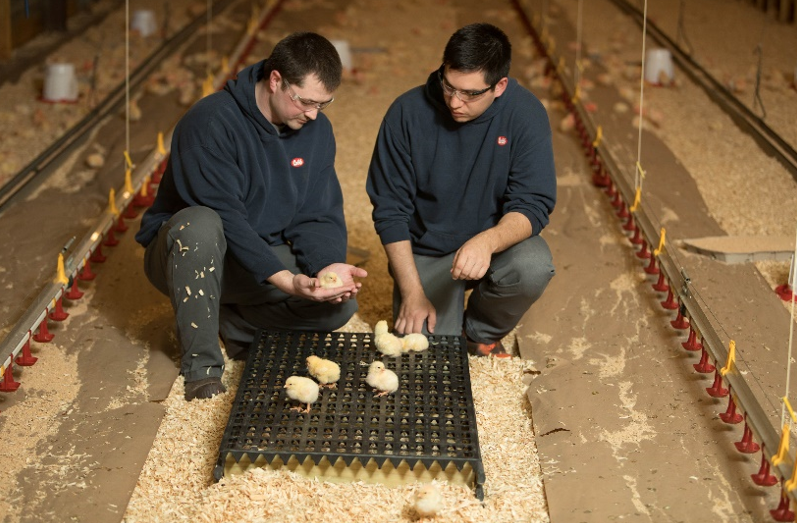
Cobb, as a primary breeder company, is one step removed from the food companies and the consumer. Nonetheless, we believe that we must be a proactive leader in climate-smart agriculture to help advance sustainable poultry production. Due to our global influence in broiler production, our role is to provide advanced genetics, encourage innovative management practices, and help poultry companies improve their efficiency. To tell our story about the five key areas that we believe are critical for sustainable poultry production, we launched a website, https://cobbcares.com/. The five areas highlighted on the Cobb website include: genetic progress, poultry care and welfare, community, workplace and environment. In each of these areas, we emphasize our core focus and the principles that are critical for our global commitment to make a difference and feed the world. The CobbCaresTM website also highlights the talented Cobb team members who help us achieve our strategic goals and the progress that we are making to advance sustainable poultry production.
The challenge of producing sufficient food to meet global population demands is an overwhelming test of a lifetime for the agriculture sector. At Cobb, we know we are part of agriculture’s solution and will strategically deliver optimal genetics so farmers around the world can produce quality chickens while using fewer natural resources.
A focus on animal welfare:
Stakeholders recognize that humane care, appropriate handling, transportation, and welfare assessments are important factors for comprehensive welfare programs. Likewise, a proactive approach to animal welfare can benefit food quality, food production, food security, and sustainability. In today’s global economy, animal welfare is no longer a ‘nice to have’ aspect for most food systems but is now a standard expectation for animal production systems. As a result, there has been an increased focus on integrating animal welfare into all aspects of the supply chain. For example, while many food companies are not directly involved in daily poultry care, they have a dedicated animal welfare council, established welfare standards, and maintain audit expectations for their suppliers. Not surprisingly, welfare metrics and animal care expectations now dominate many national poultry standards and welfare claims are present on food labels to enhance consumer awareness for welfare.
If ten people were asked to define animal welfare, it is likely to receive ten different responses. Many will mention the importance of the animal’s biological/health status and may state that a healthy animal means good welfare. Others firmly believe that specific welfare certifications and standards will drive improvement in welfare outcomes for animals. These different perspective and expectations show that animal welfare can be viewed as extremely complex and subjective. An analysis by Wageningen Livestock Research compared welfare outcomes for three different production systems that are used for broiler flocks in the Netherlands. While there were differences between flocks and requirements for the systems, the researchers concluded that the farmer has a critically important role and attention to management and housing conditions are associated with good welfare outcomes. They also summarized that, regardless of production system, farm management, the health and quality of chicks, and daily care can have a major impact on the welfare performance of a flock. The implications of this study for the global industry are important as we emphasize the importance of animal welfare for sustainable poultry production. Since chickens are grown in a wide range of housing and management systems around the world, this study and other previous publications highlight the importance of animal-based and evidence-based outcomes, not input-based mandates, as the primary way to promote welfare improvement of broiler flocks.
At Cobb, our animal welfare program has written standards and expectations that are implemented across our global locations. It is our goal to ensure that welfare is monitored, measured and managed to verify compliance and demonstrate progress at each farm and hatchery. This proactive approach allows us to accurately evaluate new technology and management protocols and prioritize timely corrective actions. To provide greater transparency, credibility and accountability for our welfare program, Cobb auditors use standard assessment tools to objectively verify outcome-based welfare factors. To support the implementation of welfare expectations across Cobb business units, we have aligned our welfare program with renown welfare frameworks. Specifically, we reference the 3 Essentials of Good Stockmanship for emphasizing staff training and the 5 Domains Model for assessing the physical and mental needs of the animal. By focusing on what the animal experiences and how this impacts its quality of life, we can evolve our management guidelines and poultry care training to enhance the nutrition, health, environmental provisions of our flocks and minimize negative experiences and negative welfare outcomes. As we conduct internal welfare research, we can evaluate techniques and innovative factors to enhance positive welfare, while also optimizing the human-animal interactions. To learn more about the integration of animal welfare, care and health parameters, and genetic progress within Cobb’s global operations, please visit https://cobbcares.com/poultry-care-and-welfare/ and https://cobbcares.com/genetic-progress/.
In addition to our internal focus for welfare, Cobb actively participates in multi-stakeholder groups that focus on improving welfare outcomes and advancing welfare awareness within the supply chain. This focus on continuous improvement generates increased trust within the supply chain and helps all understand why and how welfare can be improved. With the increasing interest in welfare from food companies, Cobb is honored to be present in discussions with global restaurant chains, major retailers and food service companies. While we are not direct suppliers to these supply chain leaders, Cobb has been able to provide valuable insight about the intersection of genetics (G), environment (E) and management (M) of poultry flocks and how this combination (GxExM) can impact both welfare and sustainability outcomes. These pre-competitive conversations and collaborations are critically important to a future in which we need to ensure optimal and efficient care of broilers so that we can provide quality protein for the supply chain and growing global population.
| References | ||||
|---|---|---|---|---|
| 1. Greenwell Study | ||||
| (2022) | ||||
| 2. UK, FAWC: 3 | ||||
| Essentials of Good Stockmanship: | ||||
| 3. David Mellor: | ||||
| (2020) | Moving Beyond the 5 Freedoms and Including The 2020 5 Domains Model – Including Human-Animal Interactions in Assessments of Animal Welfare | |||







